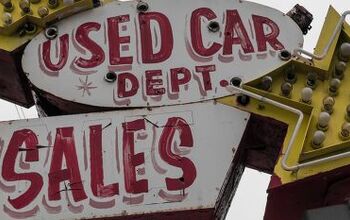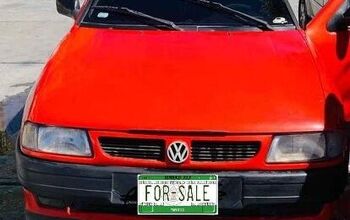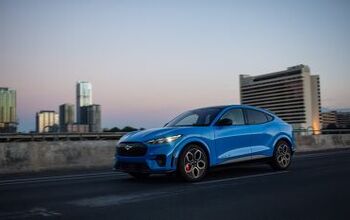Smell Ya Later: Detroit Council Urges Stellantis to Buy Area Homes

In the latest development of what’s been a long-running saga involving strange odors from the Detroit Assembly Complex - Mack facility, city council members in Detroit are calling on Stellantis to relocate some residents who have been impacted by the issue.
According to Automotive News and other sources, the council has authorized a decision urging the automaker to “offer home buyouts at fair market value.” Note they are not requiring them to carry out this plan, instead making something of a strong suggestion. Whether the company will follow this guidance is, at present, unclear but Stellantis has apparently set aside $1.8 million to equip some homes near the plant with new windows, HVAC gear, and air monitors. As anyone who has ever taken on a home reno will tell you, that amount will likely be consumed very quickly.
Issues stem back a couple of years to the start of production at Mack. Neighbors were soon complaining of odd smells they felt were related to vehicle paint products, and Stellantis was quickly on the receiving end of half a dozen violations relating to air quality – not all of which were confined to the Mack facility. While spox insist the place is within permitted limits and their interim solutions have been effective, it would seem the problem is persistent.
In its present form, Mack is home to the production of the Jeep Grand Cherokee, its 4xe variant, and the long-wheelbase Grand Cherokee L. Roughly 2.5 million square feet of floor space on 178 acres provide employment for nearly 5,000 hourly workers and over 200 salaried personnel. To put it mildly, the place is important to Jeep and the UAW. The space was once used for powertrain assembly before Stellantis plowed about $1.6 billion into it for Grand Cherokee production. Automotive activity on the site dates all the way back to 1916 when the Michigan Stamping Company set up shop.
Part of that $1.6 billion investment was an all-new facility set to be used as a paint shop – ostensibly the place from which the obnoxious paint smells are emanating. Stretching almost a million square feet over five floors, this place handles all aspects from a phosphate e-coat to primers, base coats, and final clear coats. Which part of the process is causing these issues has yet to be publicly identified.
[Image: Stellantis]
Become a TTAC insider. Get the latest news, features, TTAC takes, and everything else that gets to the truth about cars first by subscribing to our newsletter.

Matthew buys, sells, fixes, & races cars. As a human index of auto & auction knowledge, he is fond of making money and offering loud opinions.
More by Matthew Guy
Latest Car Reviews
Read moreLatest Product Reviews
Read moreRecent Comments
- Varezhka I have still yet to see a Malibu on the road that didn't have a rental sticker. So yeah, GM probably lost money on every one they sold but kept it to boost their CAFE numbers.I'm personally happy that I no longer have to dread being "upgraded" to a Maxima or a Malibu anymore. And thankfully Altima is also on its way out.
- Tassos Under incompetent, affirmative action hire Mary Barra, GM has been shooting itself in the foot on a daily basis.Whether the Malibu cancellation has been one of these shootings is NOT obvious at all.GM should be run as a PROFITABLE BUSINESS and NOT as an outfit that satisfies everybody and his mother in law's pet preferences.IF the Malibu was UNPROFITABLE, it SHOULD be canceled.More generally, if its SEGMENT is Unprofitable, and HALF the makers cancel their midsize sedans, not only will it lead to the SURVIVAL OF THE FITTEST ones, but the survivors will obviously be more profitable if the LOSERS were kept being produced and the SMALL PIE of midsize sedans would yield slim pickings for every participant.SO NO, I APPROVE of the demise of the unprofitable Malibu, and hope Nissan does the same to the Altima, Hyundai with the SOnata, Mazda with the Mazda 6, and as many others as it takes to make the REMAINING players, like the Excellent, sporty Accord and the Bulletproof Reliable, cheap to maintain CAMRY, more profitable and affordable.
- GregLocock Car companies can only really sell cars that people who are new car buyers will pay a profitable price for. As it turns out fewer and fewer new car buyers want sedans. Large sedans can be nice to drive, certainly, but the number of new car buyers (the only ones that matter in this discussion) are prepared to sacrifice steering and handling for more obvious things like passenger and cargo space, or even some attempt at off roading. We know US new car buyers don't really care about handling because they fell for FWD in large cars.
- Slavuta Why is everybody sweating? Like sedans? - go buy one. Better - 2. Let CRV/RAV rust on the dealer lot. I have 3 sedans on the driveway. My neighbor - 2. Neighbors on each of our other side - 8 SUVs.
- Theflyersfan With sedans, especially, I wonder how many of those sales are to rental fleets. With the exception of the Civic and Accord, there are still rows of sedans mixed in with the RAV4s at every airport rental lot. I doubt the breakdown in sales is publicly published, so who knows... GM isn't out of the sedan business - Cadillac exists and I can't believe I'm typing this but they are actually decent - and I think they are making a huge mistake, especially if there's an extended oil price hike (cough...Iran...cough) and people want smaller and hybrids. But if one is only tied to the quarterly shareholder reports and not trends and the big picture, bad decisions like this get made.


































Comments
Join the conversation
Why aren't the dealing with the source? Doesn't it make sense for Stellantis to filter and scrub the emissions before they exit the plant.
A polluting factory should be held accountable; they make all that money so they can eat that cost if they don't want to cut their pollution.